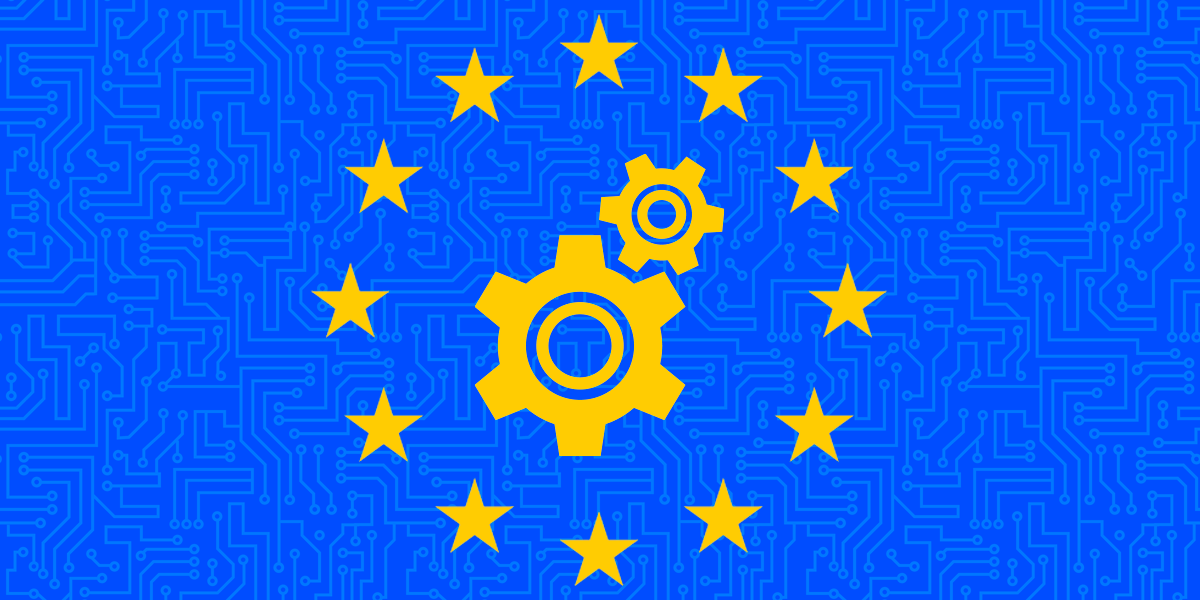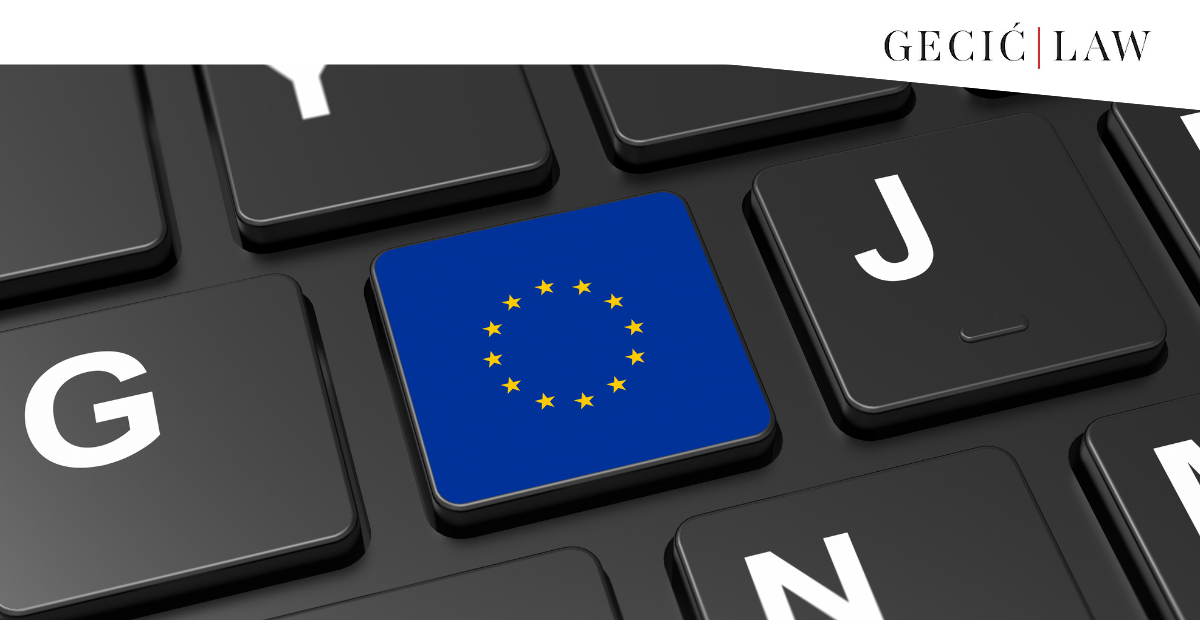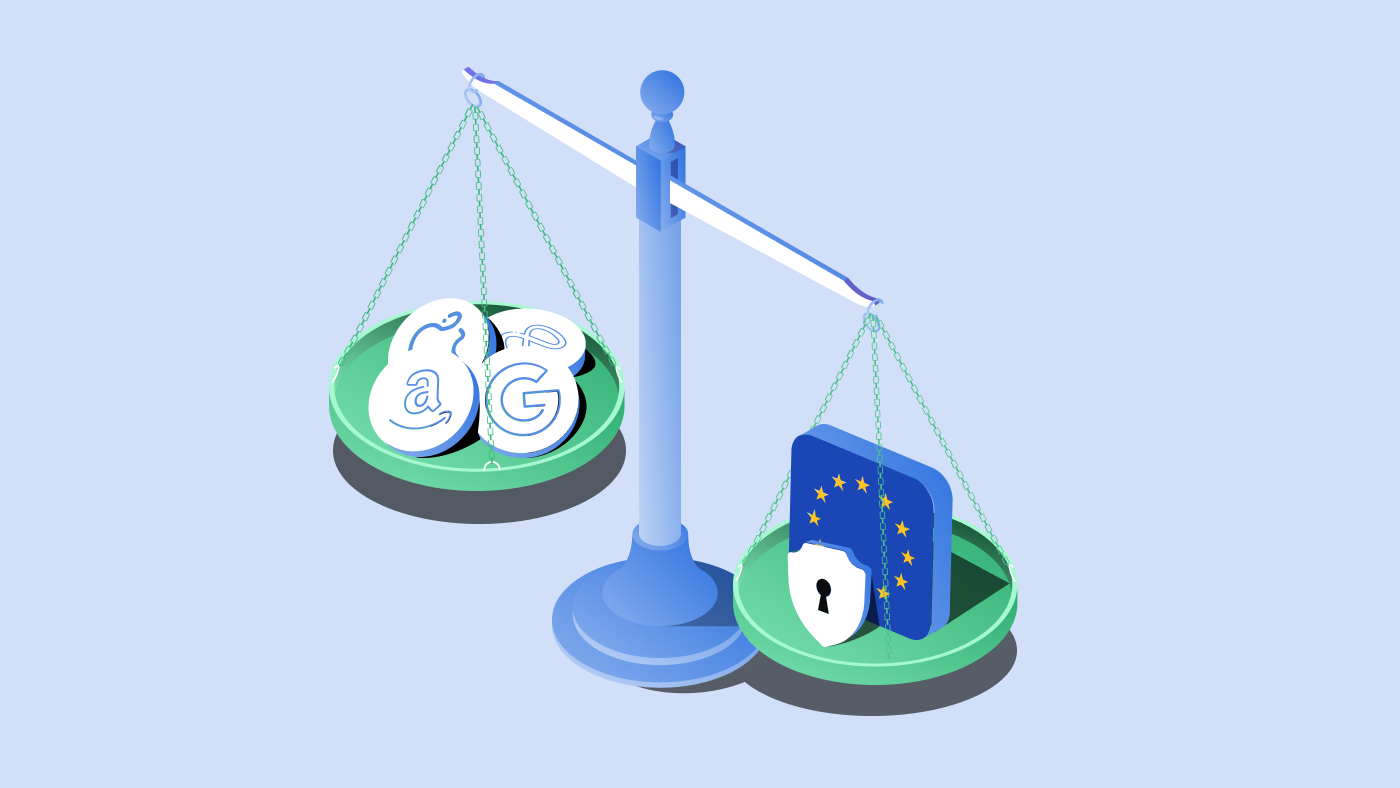The European Union’s Digital Markets Act (DMA), which came into force in 2023, is reshaping the competitive landscape of the tech sector. Its primary aim is to curb the power of “gatekeepers”—large online platforms that dominate key digital markets—and foster a more open and competitive digital environment. For companies and consumers alike, the DMA represents a significant shift in how digital markets are regulated and how competition is maintained.

In this post, we’ll explore the objectives of the Digital Markets Act, how it’s impacting major tech companies, and the opportunities it creates for smaller firms and consumers.
1. What is the Digital Markets Act?

The Digital Markets Act (DMA) is a landmark piece of legislation introduced by the European Union to address anti-competitive practices in the digital space. It targets “gatekeepers”, which are defined as large online platforms that control access to key services, such as search engines, social networks, messaging platforms, and app stores.
To be classified as a gatekeeper, a company must meet several criteria, including:
- A large annual turnover within the EU.
- A significant user base in multiple EU countries.
- Ownership of a core platform service that acts as a gateway for businesses to reach consumers.
Gatekeepers have significant influence over how other businesses access digital markets, and their dominance has raised concerns about market fairness and innovation.
The DMA introduces rules to prevent these gatekeepers from using their power to stifle competition, restrict innovation, or exploit smaller companies that rely on their platforms.
2. Key Provisions of the DMA

The Digital Markets Act imposes new obligations on gatekeepers to ensure fair competition. Some of the most important provisions include:
- Interoperability: Gatekeepers must allow their platforms to work with competing services. For example, messaging platforms like WhatsApp may be required to enable communication with smaller apps to avoid locking users into one ecosystem.
- Data Sharing: Large platforms are required to share data with businesses that operate on their platforms. For example, app developers can gain access to data about how their apps are used without the gatekeeper withholding or selectively offering this information.
- Anti-Self-Preferencing: Gatekeepers are prohibited from ranking their own services or products higher than those of competitors. For instance, Google would not be allowed to prioritize its own search results or products over those of third-party sellers.
- No Bundling: Gatekeepers cannot force businesses to use one service as a condition for accessing another. This includes preventing companies like Apple or Google from making developers use their in-app payment systems as a precondition for being listed in their app stores.
- Advertising Transparency: Gatekeepers must provide advertisers with access to data on ad performance, which was previously only available to the platforms themselves.
- Pre-Installation Restrictions: Gatekeepers cannot mandate that their own apps come pre-installed on devices or prevent users from uninstalling them. For example, Android users could be free to remove Google apps that come pre-installed on their phones.
Failure to comply with these rules can lead to significant penalties, including fines of up to 10% of a company’s global revenue and even the potential for structural remedies like forced divestiture.
3. Impact on Major Tech Companies
The DMA primarily targets Big Tech firms like Google, Apple, Amazon, Meta (formerly Facebook), and Microsoft—companies that have long been accused of stifling competition in digital markets. Here’s how these gatekeepers are affected by the DMA:
- Google: Google’s dominance in search, advertising, and mobile operating systems is directly challenged by the DMA. The company must allow competitors more access to its platforms and data. The DMA’s anti-self-preferencing rules could affect Google Shopping, where the company has previously been accused of favoring its own services over third-party vendors.
- Apple: Apple is affected primarily through its control of the App Store. The DMA may force Apple to allow third-party app stores on its devices and permit developers to use alternative payment systems, thus weakening its control over iOS’s ecosystem. Additionally, Apple’s policy of limiting interoperability between iMessage and other messaging services could be challenged.
- Meta (Facebook): Meta’s dominance in social networking and messaging platforms like WhatsApp and Messenger comes under scrutiny. The requirement for interoperability could weaken Meta’s grip on its user base, as users would have more freedom to switch between competing services without losing contact with their social network.
- Amazon: As one of the largest e-commerce platforms, Amazon may face restrictions under the DMA’s anti-self-preferencing rules. It will be harder for Amazon to favor its own products in search results or use seller data to compete against independent vendors on its platform.
- Microsoft: Microsoft’s control of business software markets, including cloud services, could also come under fire. For instance, Microsoft’s bundling of services like Teams with Office 365 may need to change under the no-bundling provisions.
4. Opportunities for Smaller Tech Companies and Startups

While the DMA places restrictions on gatekeepers, it opens up a world of opportunity for smaller tech companies and startups that have struggled to compete in a landscape dominated by a few giants.
Some potential benefits for smaller firms include:
- Easier Market Entry: The DMA prevents gatekeepers from imposing unfair barriers to entry, allowing smaller businesses to compete on a more level playing field. For example, independent app developers can now use alternative payment systems, reducing fees and improving profit margins.
- Increased Visibility: With the anti-self-preferencing rules, smaller companies are more likely to get fair exposure on major platforms. This can lead to increased user engagement, higher sales, and greater access to new customers.
- Access to Data: Gatekeepers are now required to share key data with businesses operating on their platforms. This can help smaller companies optimize their services and improve their marketing strategies by gaining a deeper understanding of customer behavior.
- Fostering Innovation: By reducing gatekeepers’ control, the DMA encourages innovation and competition, which benefits the entire digital ecosystem. New technologies and services may emerge as smaller companies find it easier to bring their products to market.
5. Benefits for Consumers

The DMA is also expected to bring significant benefits to consumers, who will enjoy greater choice, transparency, and control in the digital market:
- More Choices: Consumers will no longer be locked into using specific apps or services due to platform restrictions. For example, the ability to use alternative app stores on iOS devices will offer users more variety and freedom.
- Better Prices: The DMA’s rules on alternative payment systems could reduce the high fees imposed by gatekeepers like Apple and Google, leading to lower costs for digital services and apps.
- Improved Transparency: Users will have greater visibility into how their data is being used and be able to make more informed decisions. The DMA also enhances transparency around online advertising, giving users a clearer picture of how ads are targeted.
6. Challenges and Criticisms of the DMA

Despite its potential benefits, the Digital Markets Act has faced criticism from various stakeholders:
- Implementation Difficulties: Some have raised concerns about how effectively the DMA can be enforced. Large companies have vast resources to challenge regulations, and ensuring compliance across such massive platforms could prove difficult for EU regulators.
- Innovation Stifling: Critics argue that the DMA could inadvertently stifle innovation by imposing too many restrictions on how platforms operate. There’s concern that limiting the ability of gatekeepers to integrate their services could reduce consumer convenience and product innovation.
- Global Impact: Since the DMA applies only within the EU, there’s uncertainty about how global tech companies will implement these rules across different regions. This could lead to fragmentation in how digital services are provided worldwide.
7. The Future of Competition in the Digital Market
The Digital Markets Act represents a bold step toward reining in the dominance of tech giants and fostering a more competitive and open digital economy. Its full impact will unfold in the coming years, but it has already set a precedent for other global markets that are considering similar regulations. The DMA is not just a regulatory change—it signals a paradigm shift in how digital markets operate, with the goal of making them more inclusive, innovative, and fair for businesses of all sizes and consumers alike.


